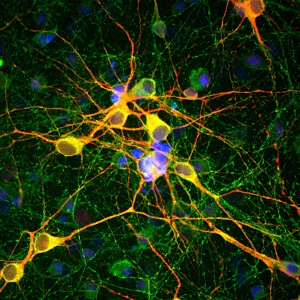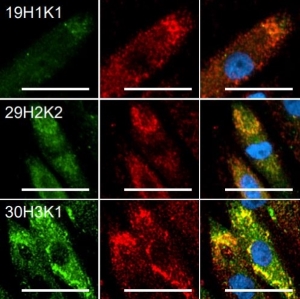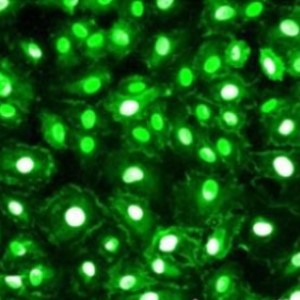As more cancer research is released, it's becoming clear that understanding the tumor microenvironment (TME) is critical for developing therapies and treatments. Along with tumor cells, cancer associated fibroblasts (CAFs) also play a key role in the TME. CAFs communicate with cancer cells and are heavily involved in growth and metastasis. Last week, Australian researchers published a study using our human primary pancreatic CAFs (cat. CAF118).
The paper focused on comparing the lipid composition inside of pancreatic tumor-derived small extracellular vesicles (sEVs) to controls. The scientists collected sEVs from many different pancreatic cancer models, including cell lines, patient-derived cells, and mouse models to compare them to benign counterparts. They found that pancreatic cancer linked sEVs were enriched in many specific lipids, including sphingosine-1-phosphate (S1P), a lipid known for cancer pathogenesis.
Image: Small extracellular vesicles from pancreatic cancer cells promote migration of pancreatic cancer associated fibroblasts when compared to control.
The investigators used our cells to see how pancreatic CAFs would react when exposed to pancreatic tumor sEVs. They found that there was a marked increase in CAF migration with the sEVs compared to the control. CAF migration is fundamental for cancers' ability to spread and invade other tissues.

You can read the full study here. A few months back, researchers from Takeda, BioTuring, and BMS utilized these same CAFs to learn how the cells react to different culture conditions, including various 2D and 3D models (learn more). Explore all publications using our various human CAF types here.
Along with our pancreatic CAFs, we offer several other types of human primary CAFs. We also have immortalized CAFs available. Furthermore, we recommend customers employ our CAF growth media (cat. CAFM03) to achieve the best culturing results. Check out our entire CAF and associated media selection here.






